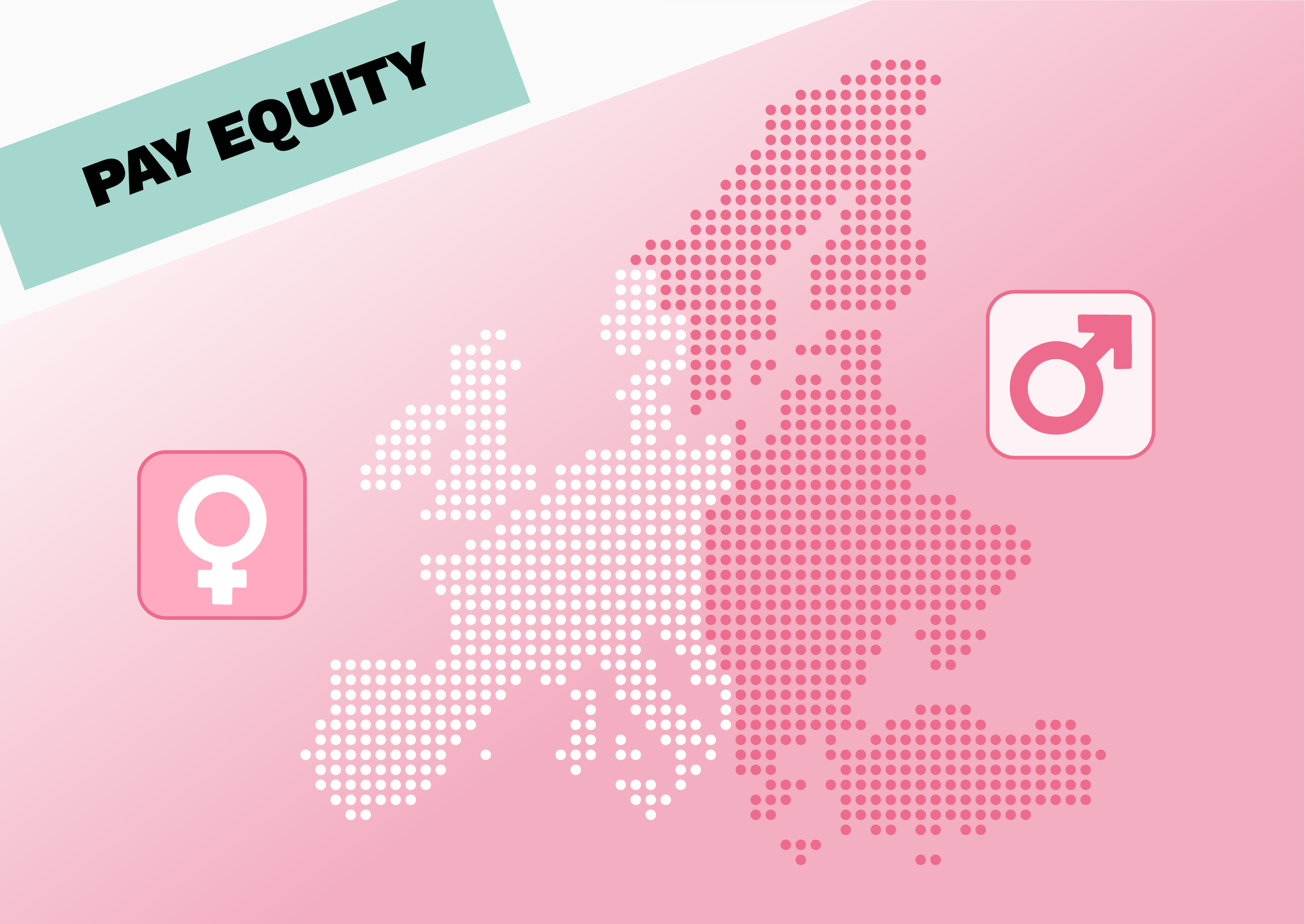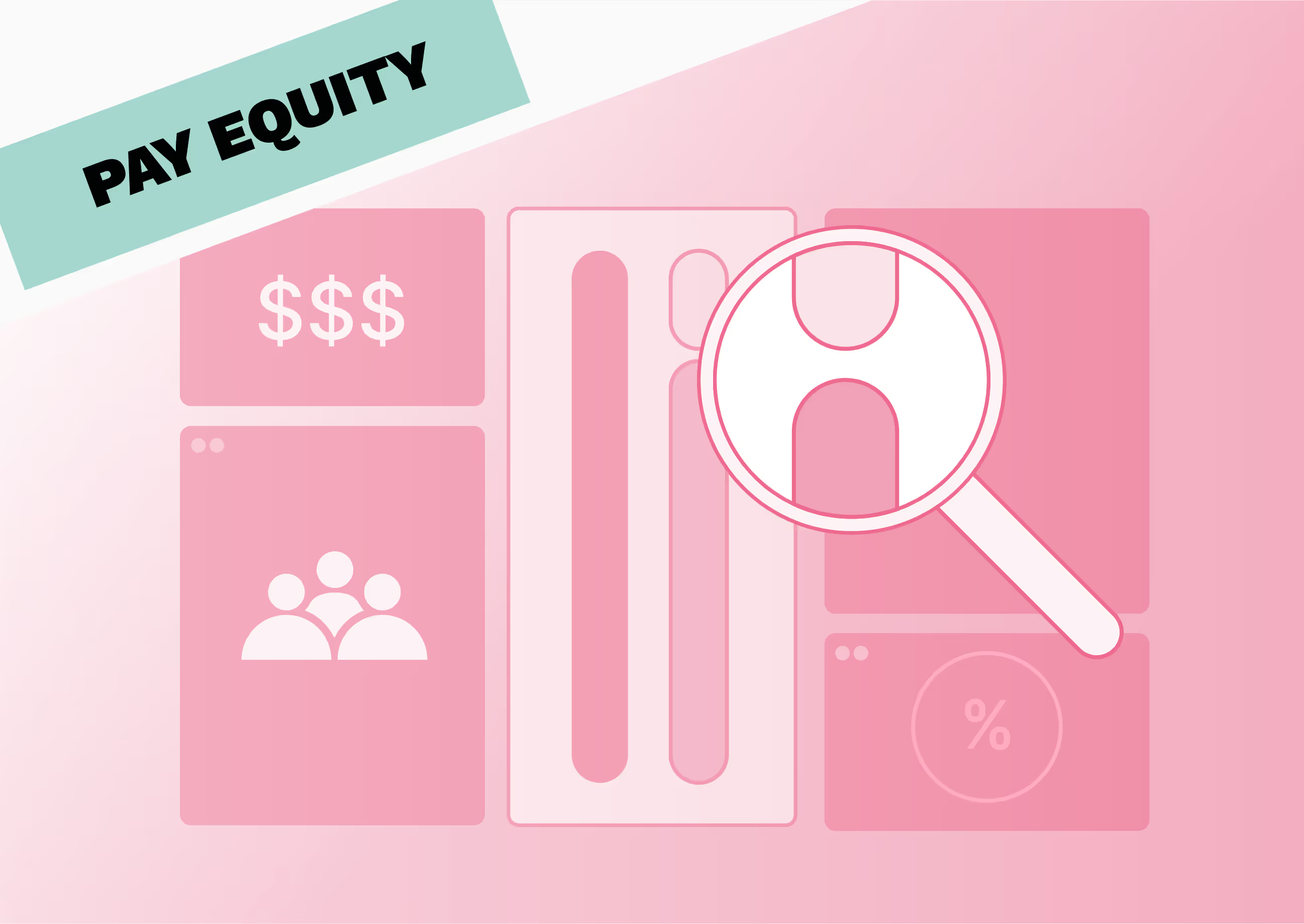Let’s get one thing straight: we know you care about paying your employees fairly. After all, you wouldn’t be reading this blog post if you didn’t.
But a recent Gartner survey found that only 32% of employees believe their pay is fair. And some of those employees work for organisations like yours that are genuinely striving for fair, equitable compensation.
Because here’s the thing: unfair pay doesn’t (always) mean there’s anything illegal or unethical going on. Even well-meaning companies can end up paying employees unfairly, despite their best efforts.
The fact is, there are all sorts of reasons why your pay systems might not be as fair as you think they are — we’ll discuss some of the most common ones in this article.
Pay equity vs. fair pay
First things first, what do we actually mean when we talk about ‘fair pay’? And what about ‘pay equity’?
These two terms are sometimes used interchangeably — and they’re certainly related. But if we’re being pernickety (and when it comes to compensation, we think you should), they mean different things.
The core idea behind pay equity is that employees should be paid the same amount if they’re doing work of equal value — that is, work that’s equivalent in terms of the effort and skill it requires. Legislation around fair pay tends to be based on this concept.
Pay fairness, on the other hand, goes a bit further than this. We can think of pay equity as what’s required by law, and pay fairness as what you consider to be right. This should be laid out in your compensation philosophy, and based on your company’s core values.
6 reasons you might be paying your employees unfairly
OK, enough introduction — let’s get to it. Here are six reasons why you might be paying your employees unfairly (and/or inequitably) — even if you mean well.
1. Asking new hires about their salary history
According to a 2021 survey, almost half of working adults have been asked about their salary history by a potential employer. As an employer, this might seem like useful information to have. But there’s a big problem: it perpetuates existing unfairness and inequity.
Think of it this way: if someone was wildly underpaid by their previous employer, does that mean they deserve to be underpaid forever? Of course not. But if you base starting salaries on previous salaries, that’s exactly what will happen.
More than this, this practice entrenches unfair pay for groups who are already more likely to be underpaid, like women and people of colour. For this reason, asking candidates about their salary history is explicitly banned in 22 US states, and the EU will follow suit over the next few years.
But putting fairness aside, there’s another reason why asking about salary history isn’t a good idea: it’s pointless. The survey we mentioned above revealed that 39% of working adults have lied about their previous earnings when asked.
2. Leaving room for negotiation when you make candidate offers
Imagine this: you’re about to make an offer to two candidates.
For the sake of argument, let’s say they have the exact same skills, experience and qualifications. The only difference? One candidate negotiates on the salary you’ve offered them, and the other doesn’t.
If you accept their counter-offer, you’ve now got two identical candidates with different salaries, just because one of them is better at negotiation. Does that sound fair to you?
Taking salary negotiation off the table is the only way to make sure your salaries are based on the candidate’s skills and attributes — and not their ability to haggle.
So, what should you do instead? We suggest creating a solid salary band structure built on reliable market data. That way, you can ensure that every employee is paid what they’re worth, with no need to negotiate.
3. Waiting for employees to ask for a raise
Some companies believe that if employees want a raise, they should ask for one. We disagree.
For one thing, some studies suggest that women are less likely to be comfortable asking for a raise than men, putting them at a disadvantage.
Plus, as an employer, you have a lot more information than your employees about what their peers and colleagues are paid, as well as the standards in your industry. So relying on them to know when they deserve a raise isn’t very logical or fair.
There’s also a potential for bias — and employees are not equally likely to get a raise even if they do ask for one.
In our opinion, the best way to handle raises is to review your salaries (at least) annually. By putting in place a standardised compensation review process, you can make sure your decisions are fair and consistent, and not dependant on employees having the courage to ask for more.
4. Leaving pay decisions to individual managers
When managers make decisions about pay on an ad-hoc, case-by-case basis, there are bound to be inconsistencies in your compensation structure. And in some cases, unconscious bias on the part of your managers could lead to inequitable pay practices — and land you in legal hot water down the line.
That’s not to say that you can’t allow managers to use their discretion when it comes to pay if you want to. After all, they know the ins and outs of their reports’ roles, skills and performance levels better than anyone.
But that discretion should be used within a range determined by your overall pay strategy, and informed by your compensation philosophy. To facilitate this, it’s vital that you deliver training to managers to help them eliminate unconscious bias and understand what should go into each pay decision.
5. Not measuring your gender pay gap
Over the next few years, the EU pay transparency directive will bring in gender pay gap reporting requirements for all EU employers over a certain size.
But what if you’re in a country where you don’t have to report on your gender pay gap? Or your company is small enough that it won’t be covered by the new regulations?
In our opinion, companies that truly care about pay equity should be aware of their gender pay gap, whether or not they’re required to be by law. After all, you can’t start dismantling internal pay inequity if you don’t know you have a problem.
Want to take a deeper dive? As well as looking at your pay gap as a whole, consider breaking the data down into different levels, job functions, departments and more for detailed insights into the fairness of your pay structure.
6. Relying on public data sources for salary data
If you want to pay your employees fairly, you need to know what other companies are paying. But too many companies rely on public data on sites like Glassdoor, which is user-submitted and unverified.
In fact, when we conducted an experiment by comparing Glassdoor salaries to our own data, we found that Glassdoor’s figures were consistently off the mark.
Now, you may be wondering how we know our data is more reliable than Glassdoor’s — and it’s a fair question. Here are a few reasons:
- It’s collected in real-time, so you always know it’s up to date.
- It’s collated from over 1200 real companies, not submitted by unverified users.
- It’s filterable by location, market, industry, job title, level, and much more — so you can always ensure you’re comparing like for like.
The point is, if the data you’re using is unreliable, you can’t really know if the salaries you’re offering are competitive. There might be nothing illegal about that, but it’s certainly not fair — especially if you’ve sold your employees on the promise of competitive pay.
The power of salary benchmarking
So here’s the big question: how can you make sure your salaries are both equitable and fair in 2024?
There are a few answers, of course. Like being more transparent about pay and how it’s determined, for one thing. Or conducting a proper analysis into your gender pay gap, and working to eliminate it.
But at Figures, we believe there’s one solution that can go a long way to helping you create a fair and equitable compensation structure: salary benchmarking.
Here are some of the advantages of using a tool like Figures:
- You won’t have to ask candidates about salary history since you’ll already know what they’re worth.
- You won’t need to leave room for negotiation when you make a job offer, which will level the playing field for those who are less likely to negotiate.
- You’ll be able to see when someone’s salary drops below your desired positioning, negating the need for them to ask for a raise.
- You’ll empower managers with the information they need to make informed (and fair) decisions about pay.
Most importantly, conducting salary benchmarking shows employees that you care about ensuring their pay is fair, equitable and competitive — which can boost morale and engagement.
So, where can you find accurate, reliable salary data?
We’re so glad you asked!
Our salary benchmarking tool gives you access to real-time, reliable salary data from across Europe and the UK.
Want to learn more? Sign up for a free demo to see it in action.






